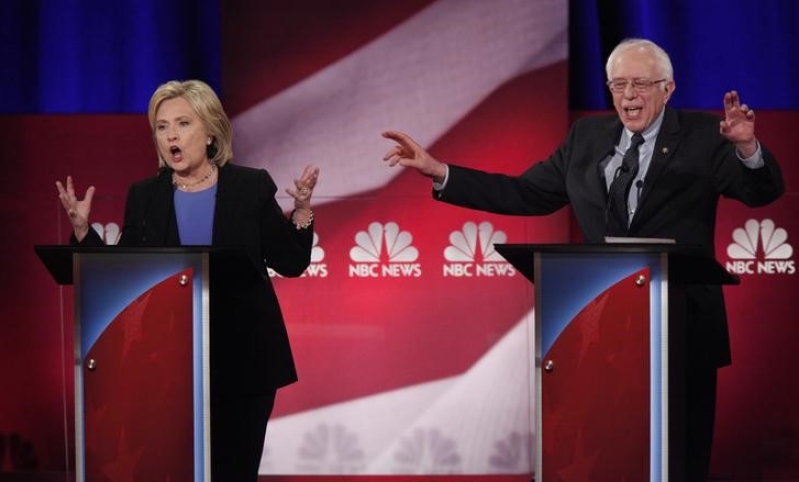
PBS announced that the upcoming Democratic Primary Debate would also simulcast live on CNN. These two networks teamed up to present the historic showdown between Bernie Sanders and Hillary Clinton. The sixth democratic debate is on Thursday, Feb. 11 at the University of Wisconsin-Milwaukee.
This Democratic National Committee (DNC)-sanctioned debate is scheduled to start at 9 p.m. EST.
PBS NewsHour anchors Gwen Ifill and Judy Woodruff are tasked to moderate the PBS-sponsored Democratic debate. In addition to the national live broadcast on PBS, viewers can watch the event online at http://www.pbs.org/newshour/.
Aside from PBS, the next Democratic debate will be streamed live at cnn.com and across mobile via CNNgo. Moreover, the event can be seen on CNN International and CNN en Espanol.
For audiences who want to listen to the debate through radio, it will be available on WUWM 89.7 FM.
It is also interesting to note that the sixth Democratic debate will be historic for the University of Wisconsin-Milwaukee as this will be their first time to host a presidential debate.
"I think this is an opportunity for all eyes to be on our campus," Scott Emmons, Dean of UW-Milwaukee's Peck School of the Arts told in Fox6Now.
The dean added that they have take out more than 150 seats to open the Helen Bader Concert Hall balcony-where CNN will do their live broadcast. For lower level, it is expected to accommodate about 580 people.
Here are the basic facts about the next Democratic debate:
Location: Helen Bader Concert Hall in University of Wisconsin-Milwauke
Start Time: 9 p.m. ET
Date: Feb 11, 2016
TV: PBS, CNN
Live Stream: CNN Live and PBS NewsHour
Meanwhile, Vermont senator Bernie Sanders had a convincing victory in the New Hampshire Democratic primary. Political analysts said this win over Hillary Clinton will send shockwaves through her campaign and give the Vermont senator an edge as he heads to tougher states in the next weeks to come.
"Thank you, New Hampshire," Sanders said in his victory speech. "Now it's on to Nevada, South Carolina and beyond."
According to Associated Press, with about 80% turn out in the Democratic primary, Sanders lead with 59.9% to Clinton's 38.5%.
However, Sanders may have won the pulse of young progressives in Iowa and New Hampshire, he'll likely have problems in Nevada, The Washington Times reported. Nevada voters are expected to resist the insurgent's call to revolution.
Nevada is the first state where Sanders is going to compete where there's a significant minority voting group in Latinos. The Democratic voters here has a wider ideological range, and they are diverse economically. The Vermont Senator will have to stretch his message to try to convince the party faithful in the Feb. 20 caucuses, according to Eric Herzik, political science department chair at the University of Nevada, Reno.







